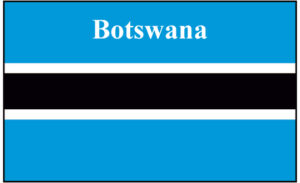 Education in Botswana was originally based on the philosophy of “Education for Kagisano” meaning education for social harmony. In 1994, the National Policy on Education was revised to provide for the economy which was transitioning from agriculturally based to industrially based. The current education plan is called Vision 2016 and is based on four principles: democracy, development, self reliance, and unity, all of which are designed to support Kagisano. Education in Botswana is free for all students, however it is not compulsory.
Education in Botswana was originally based on the philosophy of “Education for Kagisano” meaning education for social harmony. In 1994, the National Policy on Education was revised to provide for the economy which was transitioning from agriculturally based to industrially based. The current education plan is called Vision 2016 and is based on four principles: democracy, development, self reliance, and unity, all of which are designed to support Kagisano. Education in Botswana is free for all students, however it is not compulsory.
Preschool caters to children aged 0-6 and is divided into three groups: baby care for children ages 0-2.5 years, day care for children ages 2.5-4 years, and pre-primary education for children ages 4-6.
Primary school is split between lower primary (standards 1-4) and upper primary (standards 5-7. Children may begin primary school at the age of 6 for public schools and at the age of 5 for private schools. Primary school students study English, Setswana, mathematics, environmental sciences, agriculture, religious and moral education, social studies, cultural studies, and creative and performing arts in route to earning the Primary School Leaving Certificate (PSLC).
Secondary education is also split into two separate programs. Junior secondary school lasts three years and completes the ten years of basic education. To progress to senior secondary school, students must first pass the Junior Certificate Examination, which is usually used to place students in senior secondary schools. The core curriculum for secondary school focuses on English, Setswana, and mathematics, with optional courses from the following four groups: humanities and social sciences, sciences, creative, technical, and vocational, and enrichment. Senior secondary school culminates in the Cambridge Overseas School Certificate Examination GCE O-level examination and students who pass this examination are granted access to higher education.
The main source of higher education in Botswana is provided by the University of Botswana. It was established in 1982 as Botswana’s first institution of higher education and has grown to four different campuses. The number of institutions of higher education in Botswana totals 27 with 5 being private institutions and the rest publicly funded. Universities award Bachelor’s following 4 years of study, Master’s following 2 years of study, and Doctorates following 3 years of study after the award of a Master’s degree.
Grading for the Botswana General Certificate of Secondary Education is marked on an A-G scale. All grades are passing and failing grades are not recorded on the Certificate.
Post-secondary grading in Botswana is as follows:
| Grade | Class | U.S. Grade Equivalence |
|---|---|---|
| A (80-100) | First Class | A |
| B (70-79) | Second Class, First Division | A-/B+ |
| C (60-69) | Second Class, Second Division | B |
| D (50-59) | Pass | C |
| E,F (40-49, 0-39) | Marginal Fail, Clear Fail | F |
© 2025 Gaetranslations | Terms & Conditions
Website by: Timefortheweb